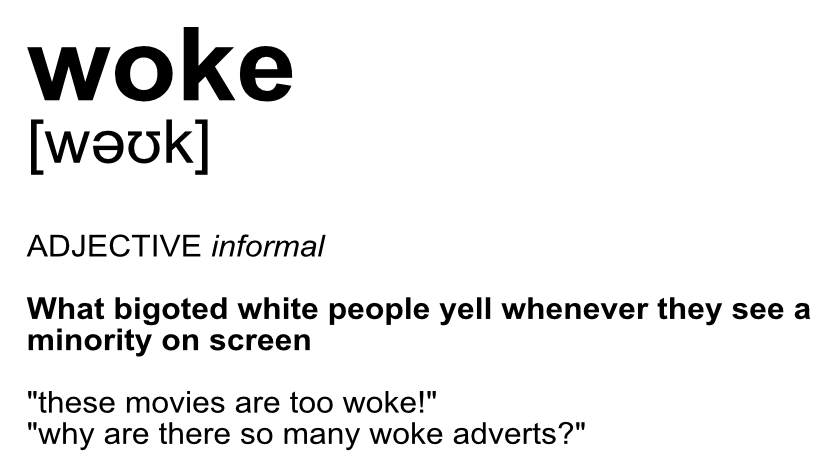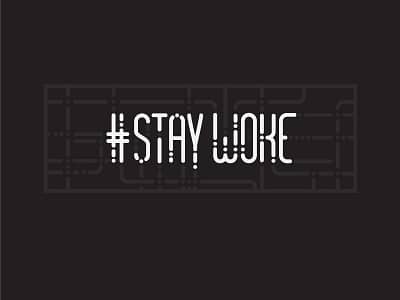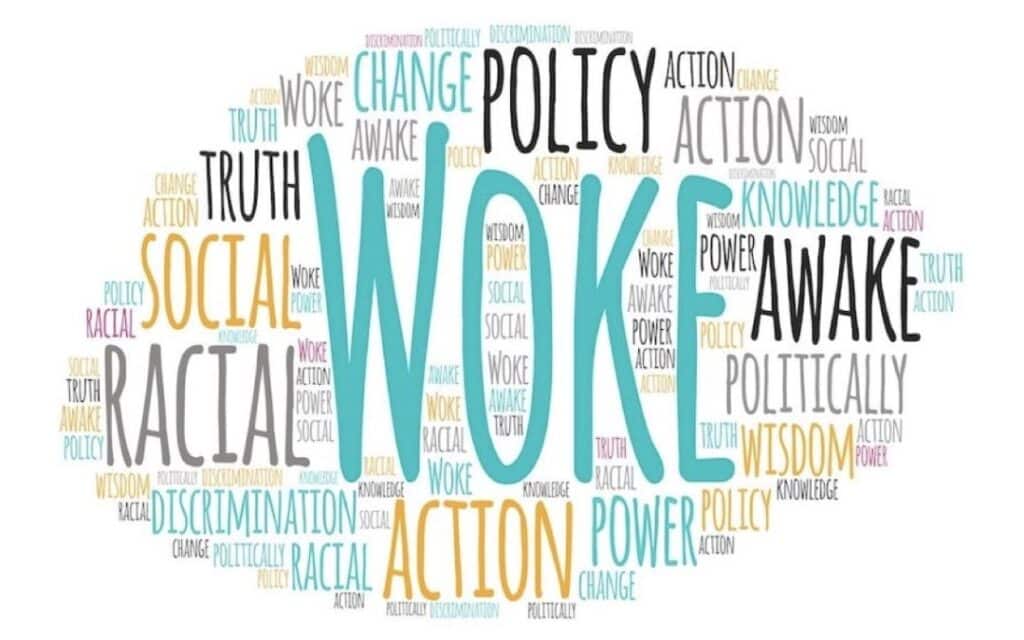In recent years, the term woke has become a lightning rod in political and social discussions. But what does it really mean to be woke, and how has this word evolved from its origins to its current usage? Let’s dive into the fascinating journey of this powerful and often misunderstood term, exploring its roots in African American culture, its rise in social justice movements, and its controversial place in today’s political landscape.
| Key Takeaways |
|---|
| “Woke” originated in African American Vernacular English (AAVE) |
| It gained prominence during the Black Lives Matter movement |
| The term means being aware of social and racial injustices |
| “Woke” has become politicized and sometimes used pejoratively |
| Understanding “woke” is crucial for navigating modern social discourse |

The Origins of “Woke”
The journey of “woke” begins in African American communities, where it has deep roots in the struggle for social justice. Originally, to be “woke” meant to be alert and aware, particularly of racial discrimination and prejudice. This usage dates back to the early 20th century, showcasing the term’s long history in Black culture.
From AAVE to Mainstream
- 1930s: Early recorded use in Lead Belly’s protest song “Scottsboro Boys”
- 1960s: Gained traction during the Civil Rights Movement
- 2000s: Popularized in music, including Erykah Badu’s 2008 song “Master Teacher”
- 2010s: Entered mainstream discourse with the Black Lives Matter movement
The evolution of “woke” reflects the ongoing struggle for equality and the power of language in social movements. As someone who grew up hearing this term in family discussions about racial injustice, I’ve witnessed firsthand how it transitioned from a community watchword to a national talking point.
Woke Definition: More Than Just a Word
At its core, being “woke” means being aware of and actively attentive to important societal issues, especially those related to racial and social justice. It’s about:
- Recognizing systemic inequalities
- Understanding privilege and oppression
- Taking action to address social injustices
Dr. Angela Davis, a prominent civil rights activist, explains:
“To be woke is to be in a constant state of learning and unlearning, challenging our own biases and the systemic injustices around us.”
This definition highlights the active nature of being woke – it’s not just about awareness, but also about taking steps to create positive change.
Woke Examples in Contemporary Culture
The concept of being woke has manifested in various ways across modern society:

- Social Media Activism: Hashtags like #StayWoke used to raise awareness
- Corporate Initiatives: Companies implementing diversity and inclusion programs
- Educational Reforms: Schools incorporating social justice topics into curricula
- Political Movements: Campaigns focused on addressing systemic inequalities
Woke Culture in Action
- 📚 Book clubs focusing on anti-racist literature
- 🎨 Art exhibitions highlighting marginalized voices
- 🎬 Films and TV shows addressing social issues
- 🗣️ Increased representation in media and politics
- 🏢 Workplace diversity and sensitivity training
These examples show how being woke has moved beyond individual awareness to influence broader cultural and institutional changes.
The Politicization of “Woke”
In recent years, “woke” has become increasingly politicized, often used as a shorthand for progressive ideologies. This shift has led to both positive and negative connotations:
Positive Associations:
- Social consciousness
- Commitment to equality
- Progressive values
Negative Associations:
- Perceived extremism
- Accusations of virtue signaling
- Political correctness
This polarization has made “woke” a contentious term in political discourse. As someone who’s navigated both progressive and conservative spaces, I’ve seen how the same word can be a rallying cry for some and a dismissive insult for others.
For more insights into how language evolves in political contexts, check out our article on Gen Z slang.
Understanding the complex history and current usage of “woke” is crucial for navigating modern social and political discussions. Whether you embrace the term or approach it with caution, its impact on our cultural conversation is undeniable.
Woke Culture: Beyond the Buzzword
Woke culture extends far beyond the use of a single word. It represents a broader shift in societal awareness and activism. Let’s explore the key characteristics and impacts of woke culture:
- Intersectionality: Recognizing how different forms of discrimination intersect and overlap
- Call-out Culture: Publicly addressing problematic behavior or statements
- Digital Activism: Using social media platforms to raise awareness and organize
- Conscious Consumerism: Supporting businesses aligned with social justice values
- Inclusive Language: Adopting terminology that respects diverse identities
Dr. Kimberlé Crenshaw, who coined the term “intersectionality,” explains:
“Woke culture at its best encourages us to see the connections between various forms of oppression and to work towards comprehensive solutions.”
This holistic approach to social justice is a defining feature of woke culture, aiming to address systemic issues at their roots.
The Impact of Woke Culture on Society
Woke culture has had significant effects on various aspects of society:
Societal Impacts of Woke Culture
| Sector | Impact |
|---|---|
| Education | More diverse curricula, increased focus on critical thinking about social issues |
| Media | Greater representation of marginalized groups, more content addressing social issues |
| Corporate World | Increased diversity initiatives, socially conscious marketing campaigns |
| Politics | More diverse candidates, policies addressing systemic inequalities |
These changes reflect a growing demand for accountability and equity across all sectors of society.
Criticisms and Controversies
Despite its positive intentions, woke culture has faced significant criticism:
- Accusations of Performative Activism: Critics argue some “woke” actions are superficial and don’t lead to real change
- Cancel Culture Concerns: Fears that call-out culture can lead to excessive public shaming
- Free Speech Debates: Arguments that woke culture stifles open dialogue and diverse viewpoints
- Backlash and Polarization: Concerns that the term “woke” has become divisive and counterproductive
These criticisms highlight the complex nature of social change and the challenges of navigating diverse perspectives in a polarized society.
For more on navigating controversial topics in modern discourse, check out our article on cringey meaning.
Woke in Different Contexts
The concept of being woke applies to various social justice issues:
Racial Justice

- Addressing systemic racism in institutions
- Promoting equity in education, employment, and criminal justice
Gender Equality
- Fighting against gender discrimination and stereotypes
- Advocating for reproductive rights and equal pay
LGBTQ+ Rights
- Supporting legal protections and social acceptance
- Challenging heteronormative and cisnormative assumptions
Environmental Activism
- Recognizing the disproportionate impact of climate change on marginalized communities
- Advocating for sustainable practices and policies
Understanding how wokeness applies across these contexts helps in grasping its broad scope and significance in modern activism.
The Future of Wokeness
As we look ahead, the concept of being woke is likely to continue evolving:
- Evolving Language: New terms may emerge to express similar concepts
- Global Perspectives: Increased focus on how social justice issues manifest globally
- Technological Impact: How AI and social media shape awareness and activism
- Generational Shifts: How younger generations interpret and apply woke principles
Dr. Ibram X. Kendi, author of “How to Be an Antiracist,” predicts:
“The future of wokeness will likely involve a deeper focus on systemic change rather than individual awareness. It’s about moving from consciousness to concrete action.”
This shift towards action-oriented wokeness could reshape how we approach social justice in the coming years.
For insights into how younger generations are shaping language and culture, explore our article on GYAT meaning.
Navigating Woke Culture
Understanding and engaging with woke culture can be challenging, but it’s increasingly important in our interconnected world. Here are some tips for navigating this complex landscape:
- Stay Informed: Keep up with current events and social issues from diverse sources
- Listen Actively: Pay attention to marginalized voices and experiences
- Reflect on Privilege: Examine your own advantages and biases
- Be Open to Learning: Approach new ideas with curiosity rather than defensiveness
- Take Meaningful Action: Move beyond awareness to support causes you believe in
Remember, being woke isn’t about perfection – it’s about continuous growth and engagement with important social issues.
Balancing Awareness and Action
One of the key criticisms of woke culture is the potential for performative activism. To avoid this, consider the following:
Turning Awareness into Action
- 🗳️ Engage in local politics and community initiatives
- 💼 Advocate for inclusive practices in your workplace
- 📚 Educate yourself and others about systemic issues
- 💰 Support organizations working towards social justice
- 🤝 Build coalitions across different communities
These actions can help translate woke awareness into tangible change.
The Importance of Nuance
In discussions about wokeness, it’s crucial to recognize the complexity of social issues. Avoid oversimplification and be willing to engage with nuanced perspectives. As Dr. Roxane Gay, author of “Bad Feminist,” notes:
“True wokeness involves understanding that most issues are not black and white, but complex and multifaceted. It’s about being willing to grapple with that complexity rather than seeking easy answers.”
This nuanced approach can lead to more productive conversations and effective solutions.
Woke Language and Communication
Being woke often involves using inclusive and respectful language. Here are some key aspects:
- Person-First Language: Putting the person before the condition (e.g., “person with a disability” rather than “disabled person”)
- Gender-Inclusive Terms: Using “they” as a singular pronoun or “folks” instead of “guys”
- Avoiding Microaggressions: Being mindful of subtle, often unintentional discriminatory comments
- Cultural Sensitivity: Respecting and accurately representing diverse cultures
For more on navigating modern communication, check out our article on text abbreviations for business.
The Global Perspective on Wokeness
While “woke” originated in the United States, similar concepts exist globally:
- UK: “Switched On”
- South Africa: “Conscious”
- India: “Jagrut” (Awakened)
These variations highlight how the core idea of social awareness transcends cultural boundaries.
Conclusion: The Ongoing Journey of Wokeness
The concept of being woke continues to evolve, reflecting the dynamic nature of social progress. Key takeaways include:
- Woke culture emphasizes awareness and action on social justice issues
- It has significantly impacted various sectors of society, from education to politics
- Criticisms and controversies highlight the complex nature of social change
- Navigating woke culture requires ongoing learning, reflection, and action
Whether you embrace the term “woke” or prefer other ways of expressing social consciousness, the underlying principles of awareness, empathy, and action remain crucial in addressing societal challenges.
As we move forward, the conversation around wokeness will likely continue to shape our social and political landscape. By engaging thoughtfully with these ideas, we can contribute to a more just and equitable world.
For more insights into modern communication and cultural trends, explore our articles on BUSSIN meaning and FR meaning.
FAQs About Woke Meaning
- Q: Is “woke” only about racial issues?
A: While it originated in the context of racial awareness, “woke” now encompasses a broader range of social justice issues. - Q: Can someone be “too woke”?
A: Critics argue that extreme or performative wokeness can be counterproductive, but supporters say there’s no such thing as being too aware of social issues. - Q: Is “woke” a generational term?
A: While popular among younger generations, the concept of being socially aware spans all age groups. - Q: How can I become more woke?
A: Start by educating yourself on various social issues, listening to diverse perspectives, and reflecting on your own biases and privileges. - Q: Is the term “woke” here to stay?
A: While the term may evolve or be replaced, the concept of social awareness and activism is likely to remain relevant.
Understanding the nuances of “woke” culture and its impact on society can help us engage more effectively in important conversations about social justice and equality. Whether you use the term or not, the principles of awareness, empathy, and action that it represents are valuable tools for creating positive change in our communities and beyond.







